For the 1978 World Cup, a total of 21 teams from Asia (including Israel) and Oceania took part in the qualifiers from which one team would advance. The teams were divided into five preliminary groups with the winners advancing to a final round-robin group. Iran was grouped with Iraq, Saudi Arabia and Syria although prior to the start of the games Iraq withdrew. As luck had it, Iran would first get both of its away games out of the way before playing the return matches at home.
Prior to Iran’s first game, Saudi Arabia and Syria had split their series with each posting a victory at home. Without much preparation other than a short camp in Ahvaz, Iran arrived in Saudi Arabia. Abdollahi, Ghelichkhani, and Zolfagharnasab would be unavailable for the match due to injuries. Fatigue also impacted the team as players were in the midst of their domestic season in the Takht’e Jamshid Cup. While such obstacles resulted in an objectionable performance (particularly in defense) on the artificial grass surface with the Saudis twice hitting the post. Nevertheless it still yielded three goals en route to a 3-0 win.
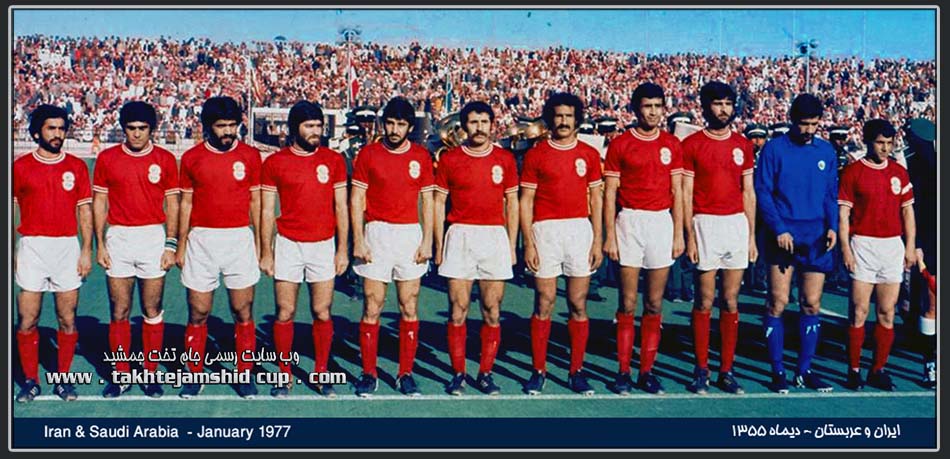
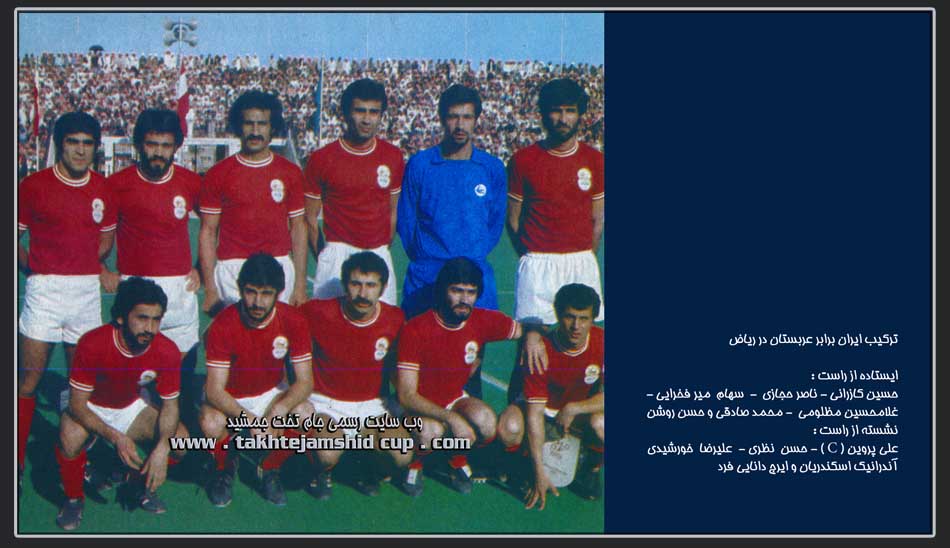
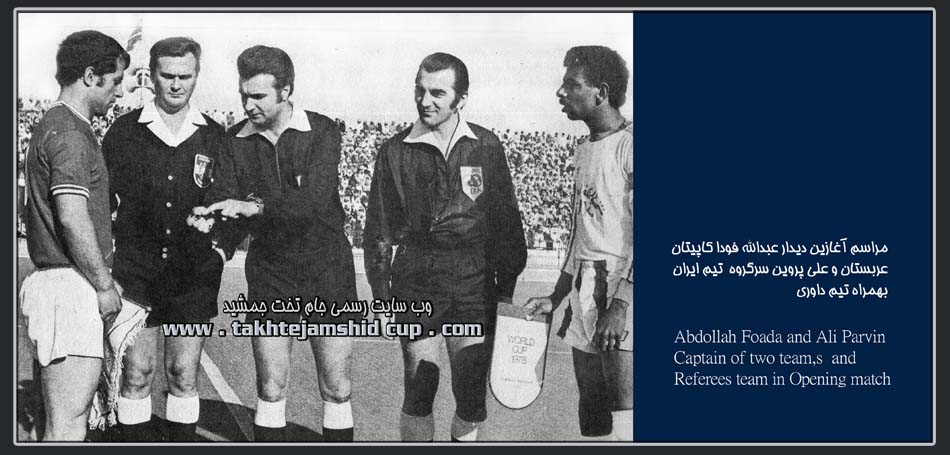
Iranian star forward Mazloomi had a role in all three goals, scoring twice and providing the assist for the Roshan’s goal.
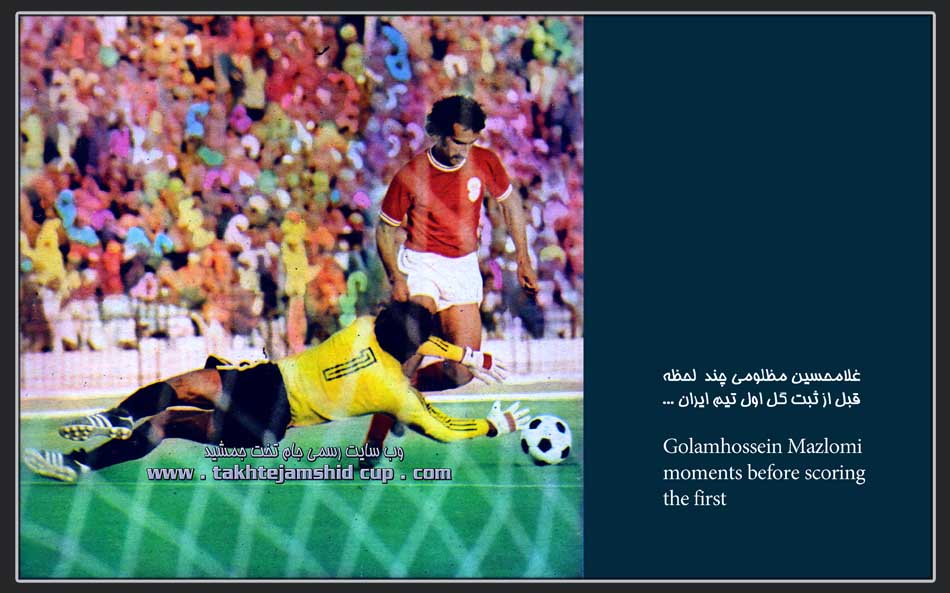
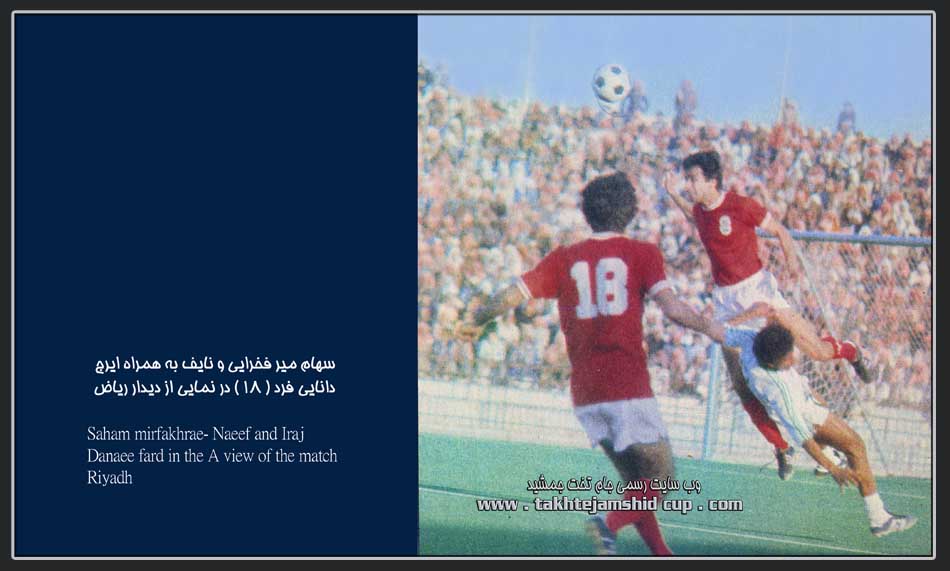
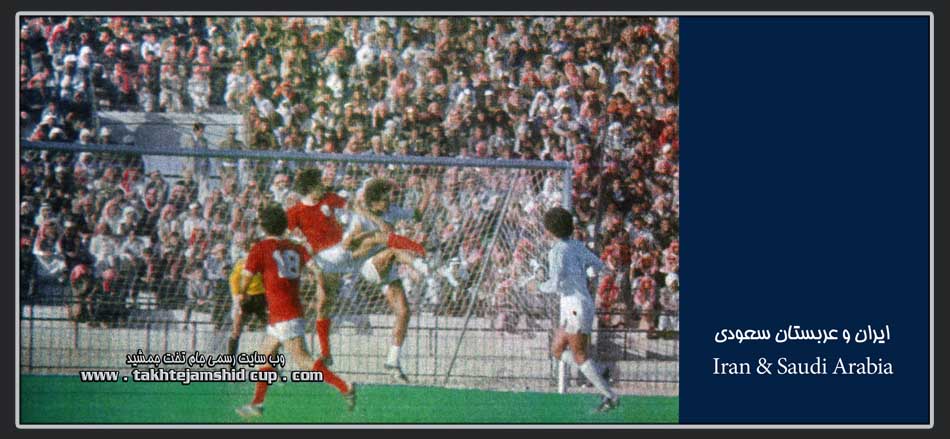
The next match away to Syria ended in a 1-0 win for Iran courtesy of a goal by Parvin.
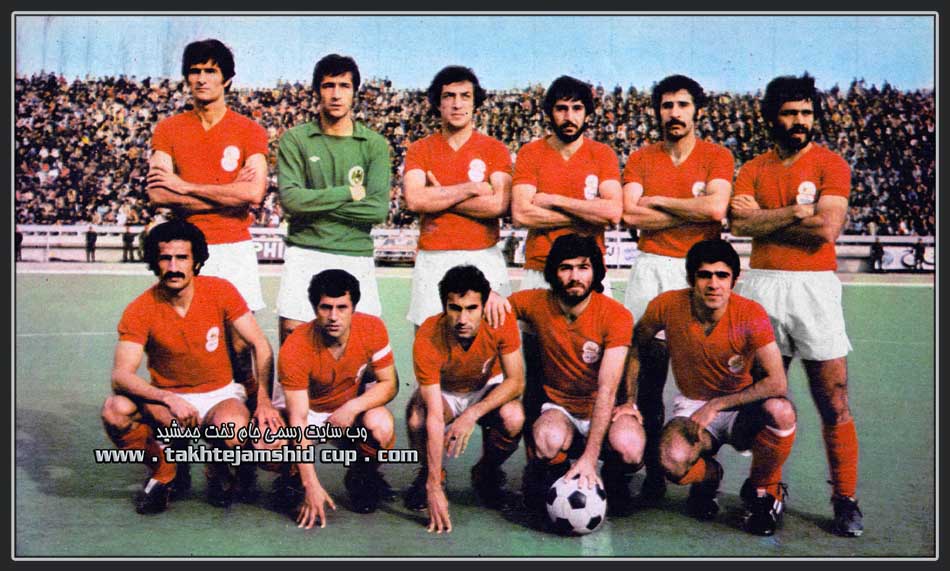
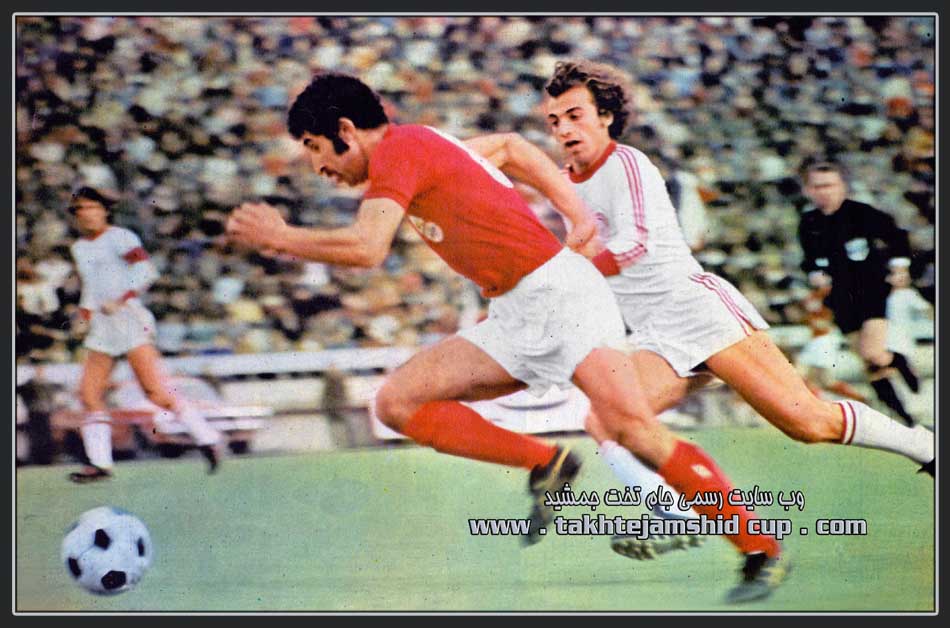
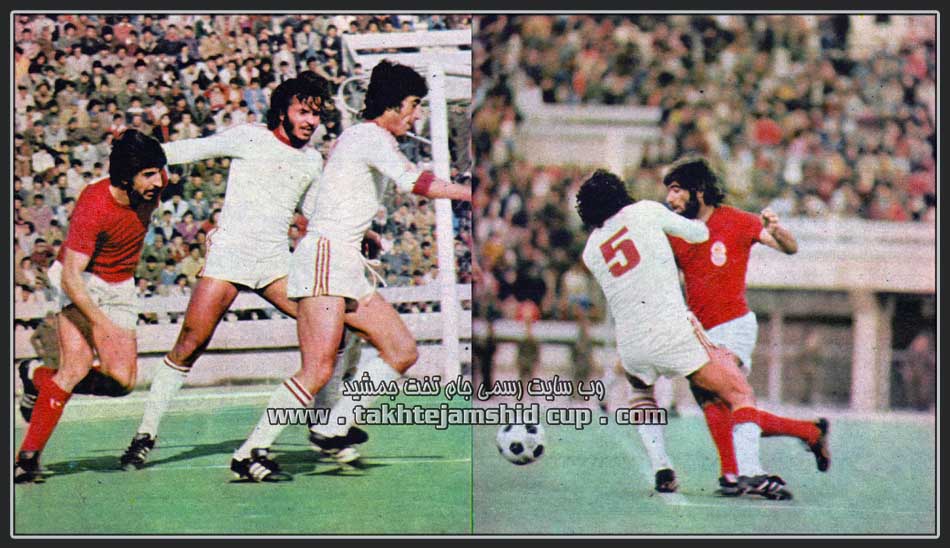
Syria withdrew from the return match and as a result it was awarded 2-0 to Iran. With the points from this match Iran had qualified for the next round, however, the inconsequential match against Saudi Arabia still had to take place. The two teams squared off in Shiraz and behind goals by Yousefi and Sharifi, Iran advanced from its group with full points and no goals allowed.
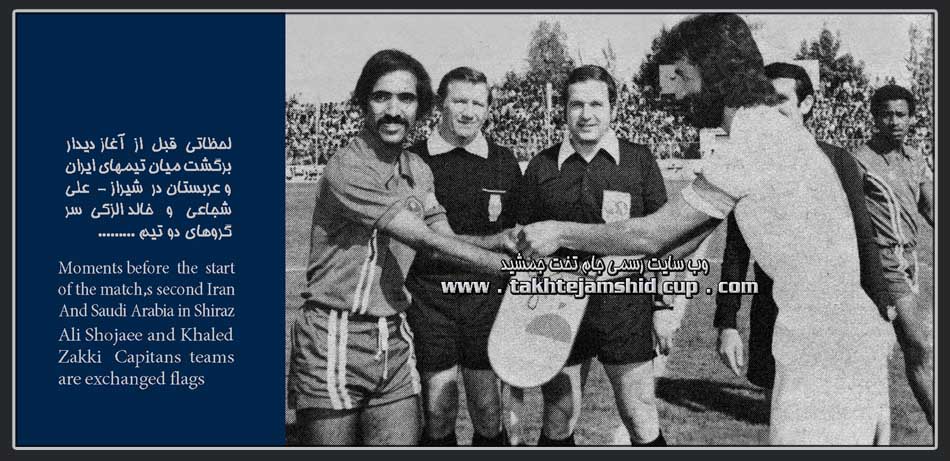
The second round of qualification began in June of 1977 and the first hurdle was an away game against Hong Kong.
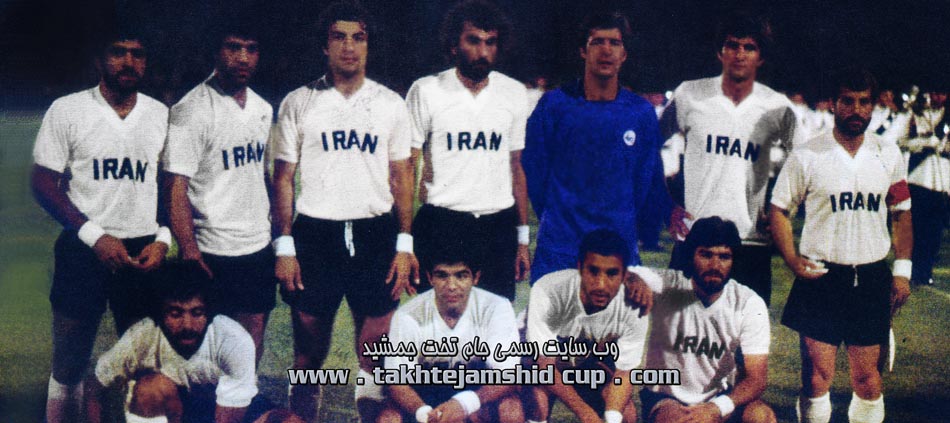
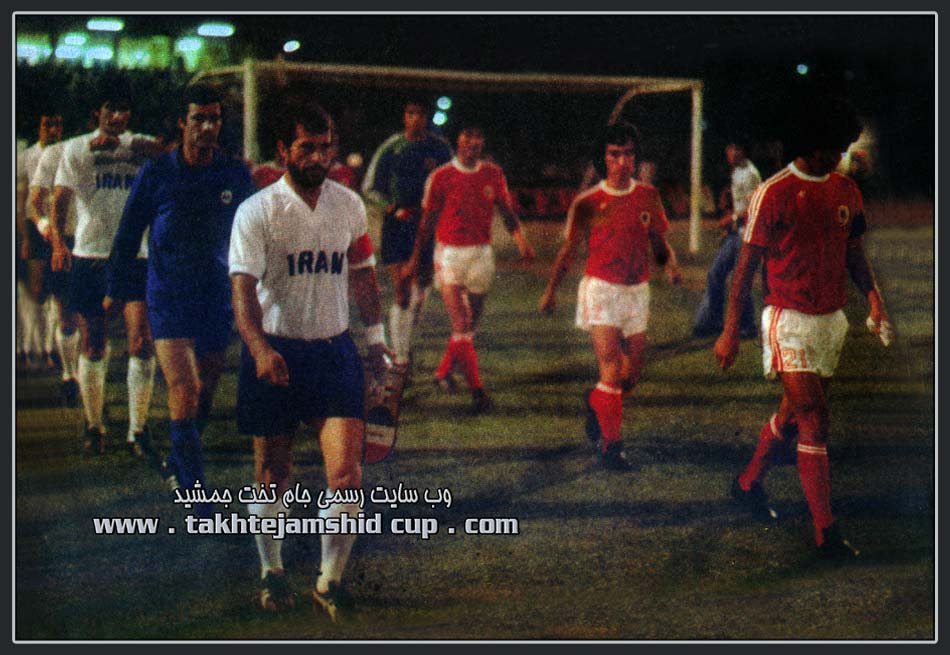
The game took place under intense humidity and without Mazloomi in the lineup due to injuries. Hong Kong was a relatively unknown team and started the game well with pressure on Iran’s goal although it was Iran that took the lead. On a corner kick, with Jahani lurking on the far post most of the defenders’ attention was diverted to him. As a result, Adelkhani sent the corner to the near post. Fully benefiting from the height advantage and a Hong Kong defender obstructing his own keeper, Kazerani headed in Iran’s first goal.
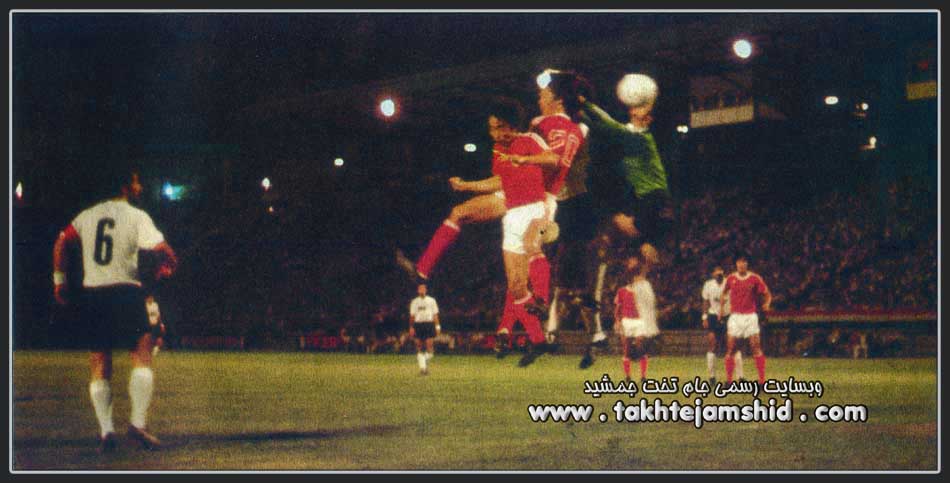
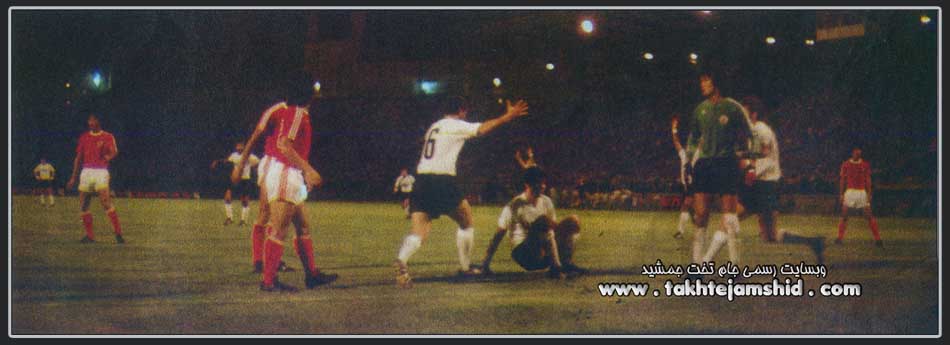
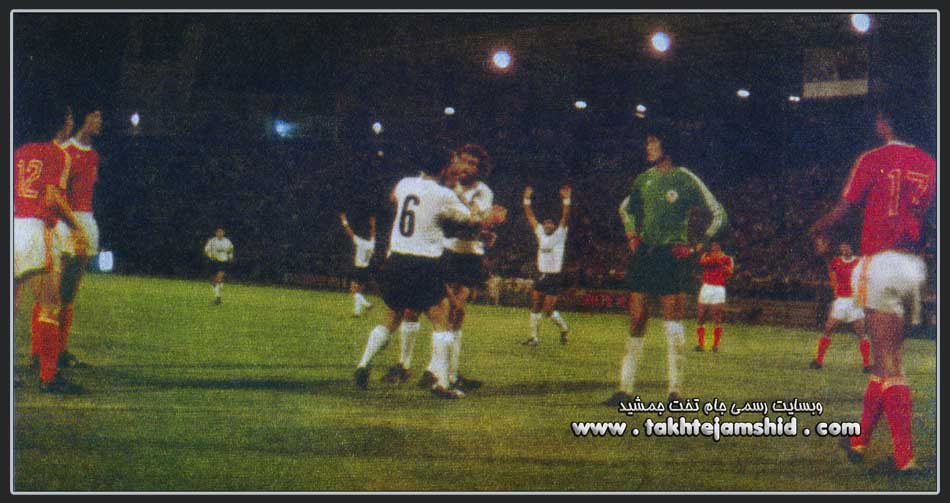
Throughout the first half Hong Kong had two opportunities to level the game but Sadeghi on the first chance and Hejazi and Abdollahi on the second one helped preserve the clean sheet. On the other hand Roshan and Ghasempour came close to extending Iran’s lead. The second half started slow although midway through Hong Kong increased its pressure in search of an equalizer. But ultimately it was a mistake by the Hong Kong keeper that gifted Iran its second goal. Parvin dribbled past two defenders to the right post and sent a ground pass through the keeper’s legs which fell to Jahani to tap into an empty net.
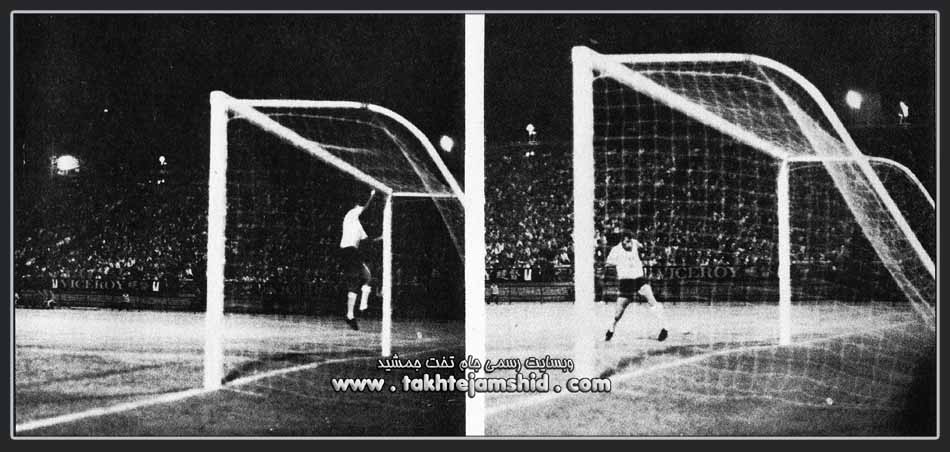
The game ended 2-0 and many believed that had Iran not approached the game in a defensive manner the score would have been higher although due to the unfamiliarity with the opponent a cautious approach seemed necessary.
The second game away against South Korea was played under similar humid conditions.
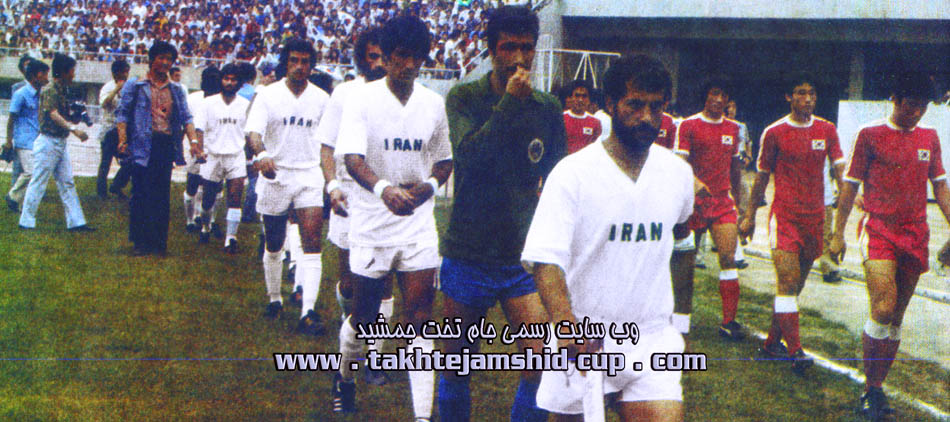
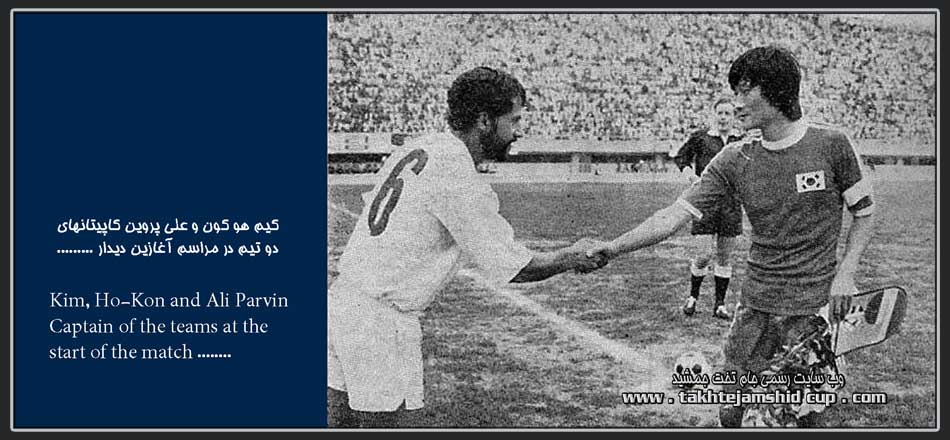
For this reason and considering South Korea’s strength, Iran played in a defensive format with many side passes while slowing the game down. Roshan reaggravated an injury and as such was not 100%. While Iran had a few chances in the first half, but it was mainly the Koreans attacking. Implementing an aerial game, they sent cross after cross in Iran’s box and had it not been for the strong play of Kazerani and Abdollahi, the first half would not have ended scoreless. In the second half Iran only threatened the Korean goal on one occasion but Roshan and Jahani’s combination play bore no results. On the other hand, South Korea introduced a new forward at halftime and spent most of the remaining time camped in Iran’s half with up to nine players at times joining in the attacks. Their best chance was when Hejazi and a Korean defender both went for an aerial ball with none of them succeeding in winning it. The ball bounced off of Hejazi’s back and made its way towards an empty net although he somehow managed to get his fingertips to it and push it out past the post. Following some rough play by Abdollahi, the Koreans had a claim for a penalty kick although the referee thought otherwise. With a bit of luck on their side, Iran managed to pull off a 0-0 tie.
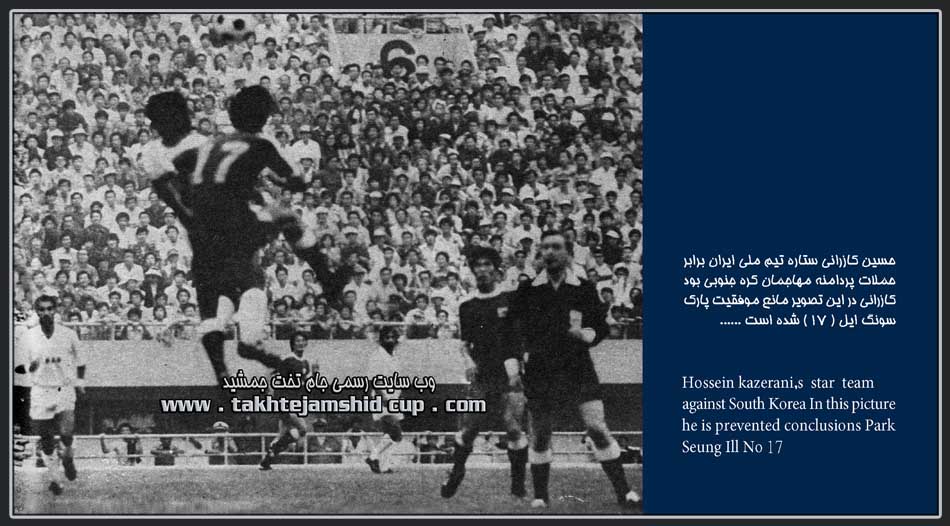
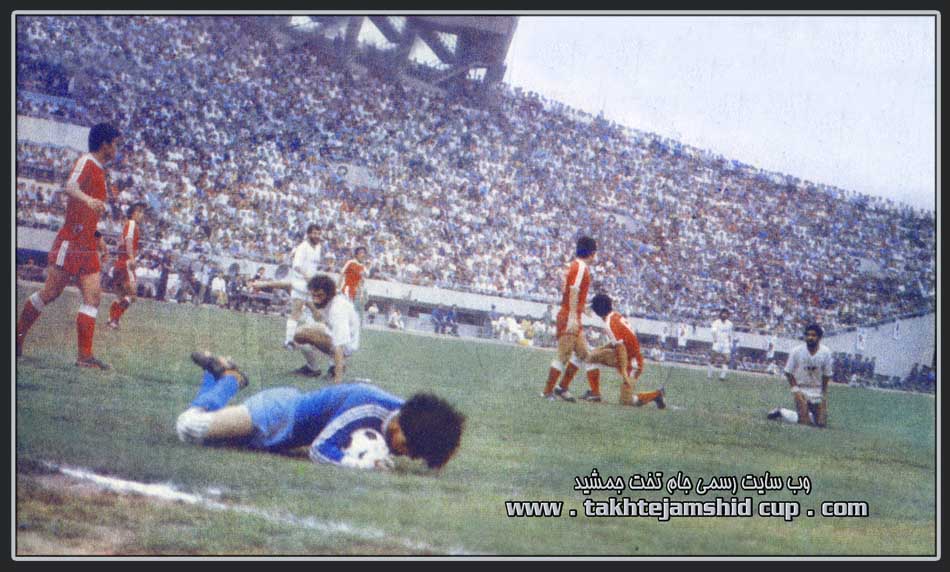
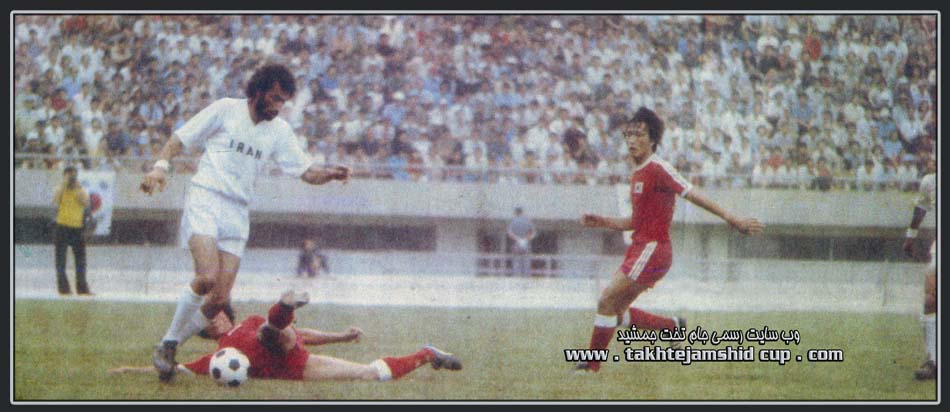
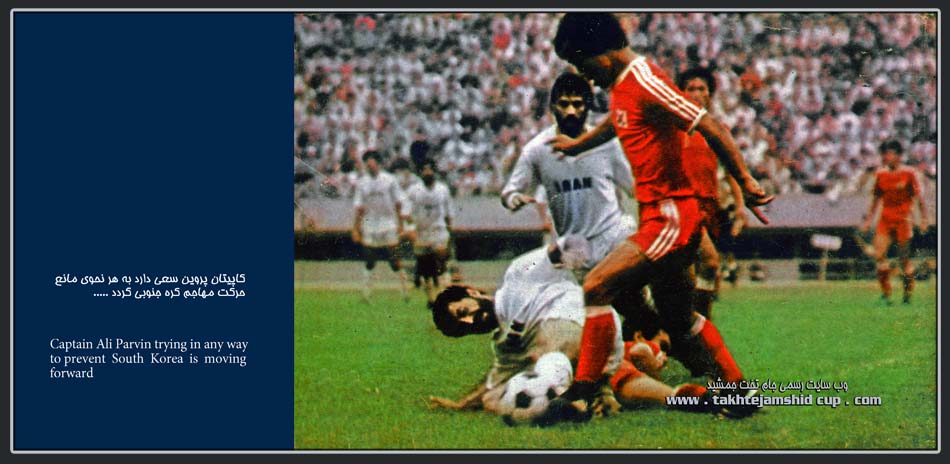
The next game, away against Australia, was an opportunity for revenge. Everyone still remembered the bitter defeat in the previous World Cup cycle against the Socceroos and nothing but a victory in their own stadium would heal that pain. Iran had done its homework for this game by observing Australia’s game against Hong Kong and scouting their individual players while noting their weaknesses. Iran arrived in Australia with sufficient time to acclimate to the weather and overcome jetlag. Even the weather seemed to cooperate with Iran as the normally seasonally cold and windy weather gave its place to a warm and sunny day.
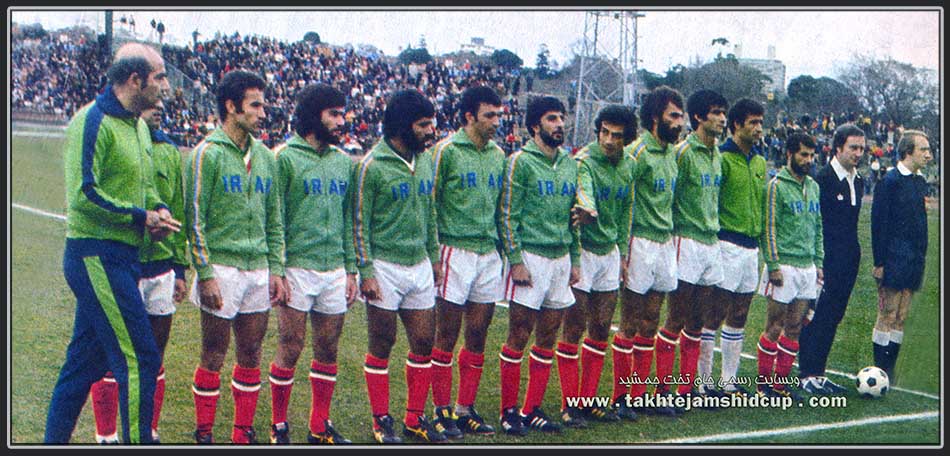
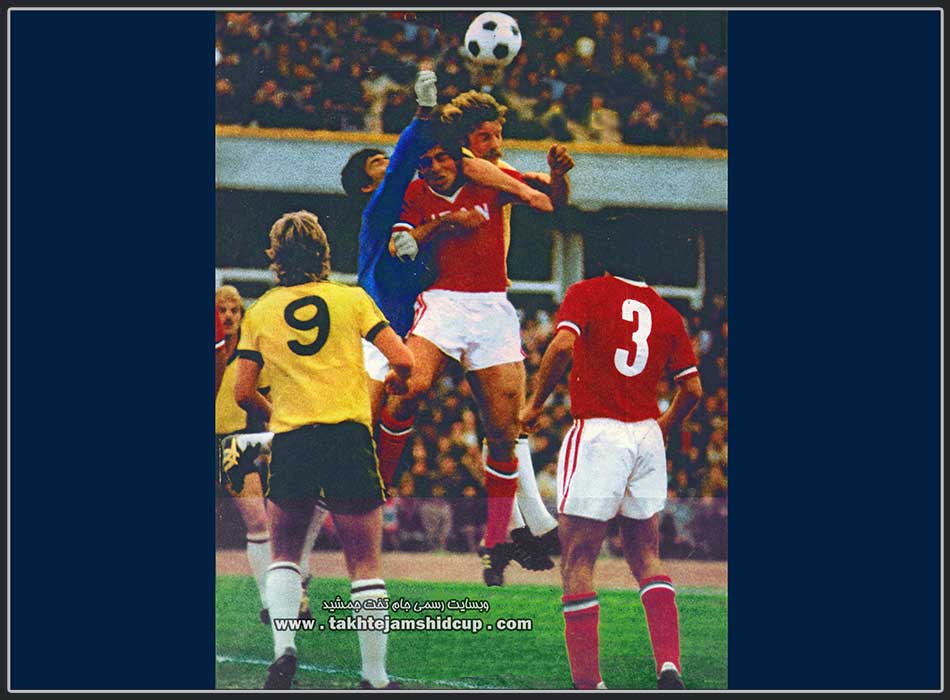
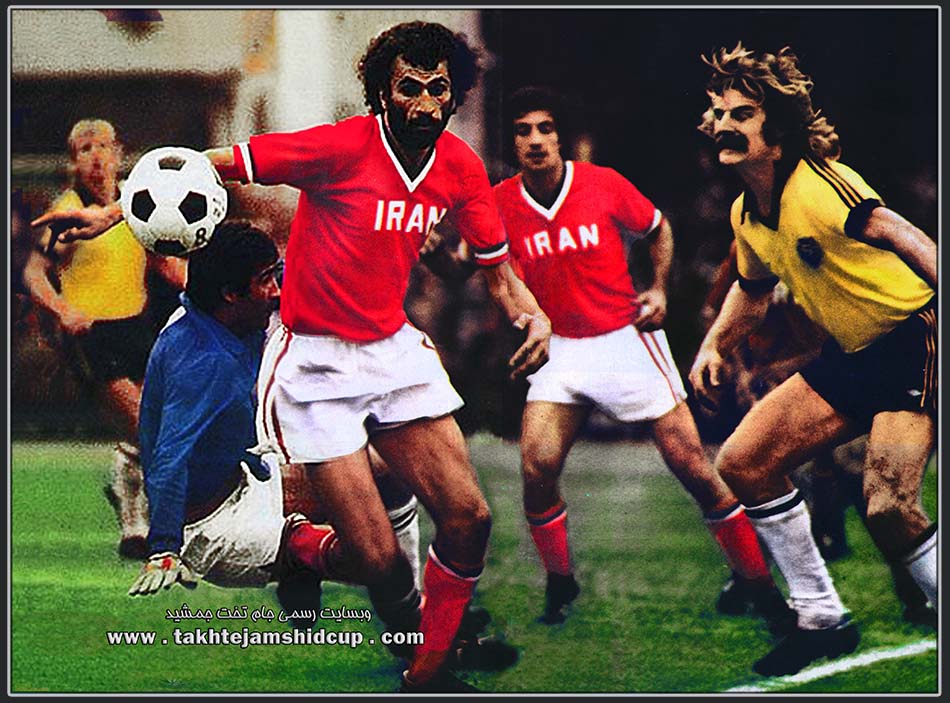
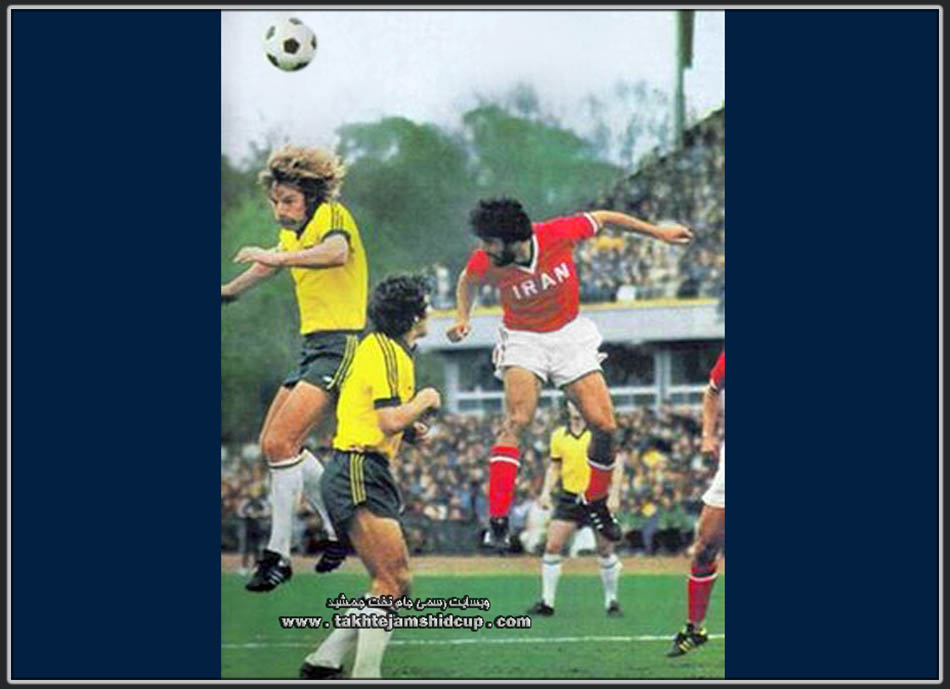
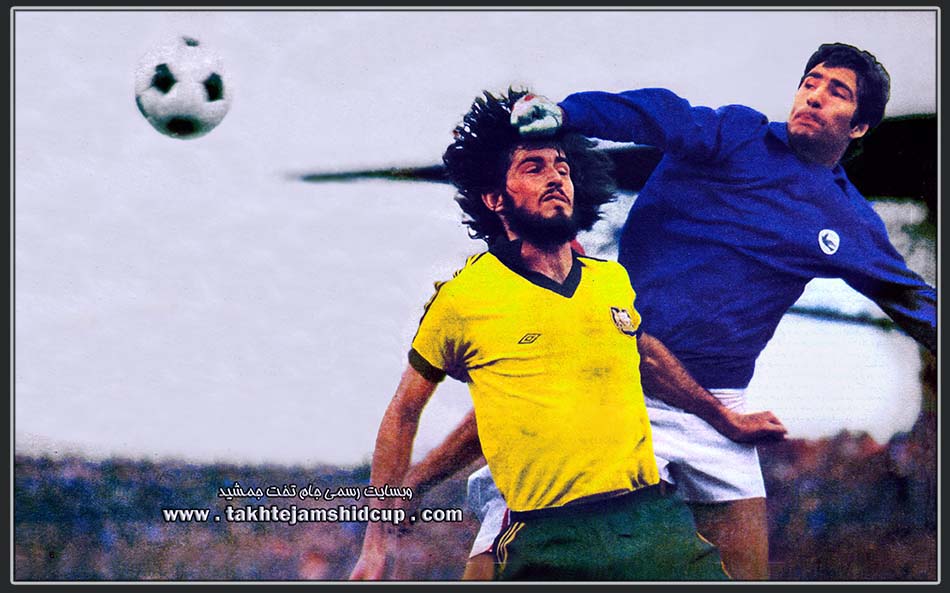
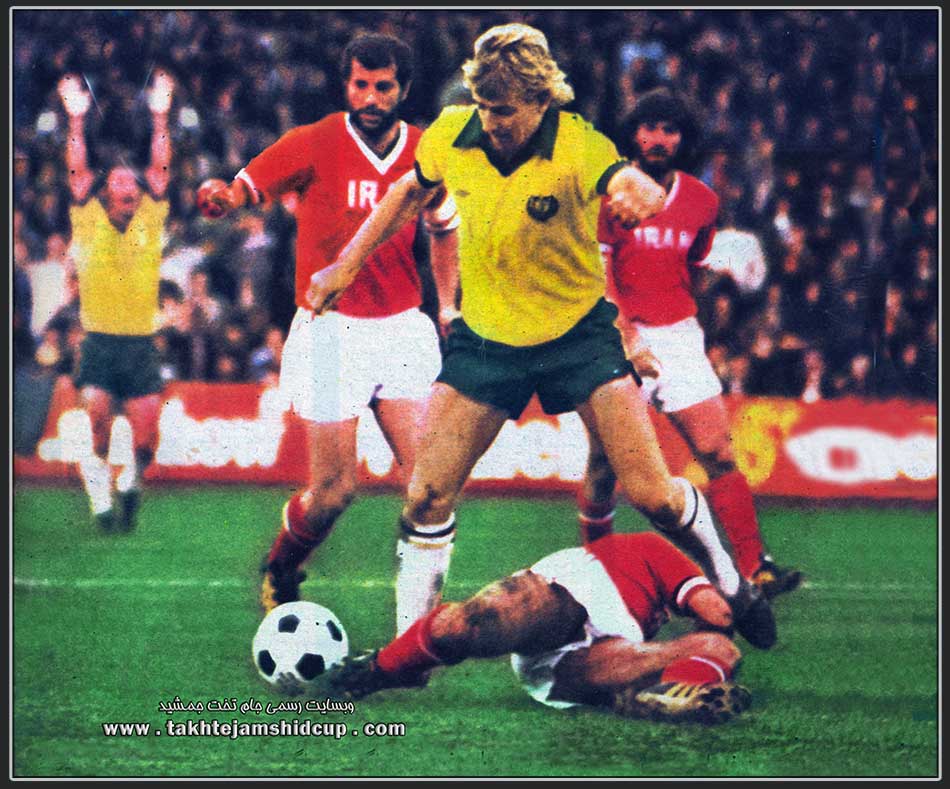
Unlike the encounter four years ago, Hejazi stood his ground perfectly and left his line with perfect timing and accuracy. Using a 4-4-2 formation, Iran matched Australia in every department but ultimately it seemed like Australia finally received the break they were looking for. With only minutes left in the first half, the Australians sent a freekick into Iran’s box. Abdollahi who had attempted to clear the ball, fell to the ground. In the ensuing melee, the ball hit has hand and the ref called a penalty kick. While Australia seemed certain to take the lead, however, their shot sailed over the bar.

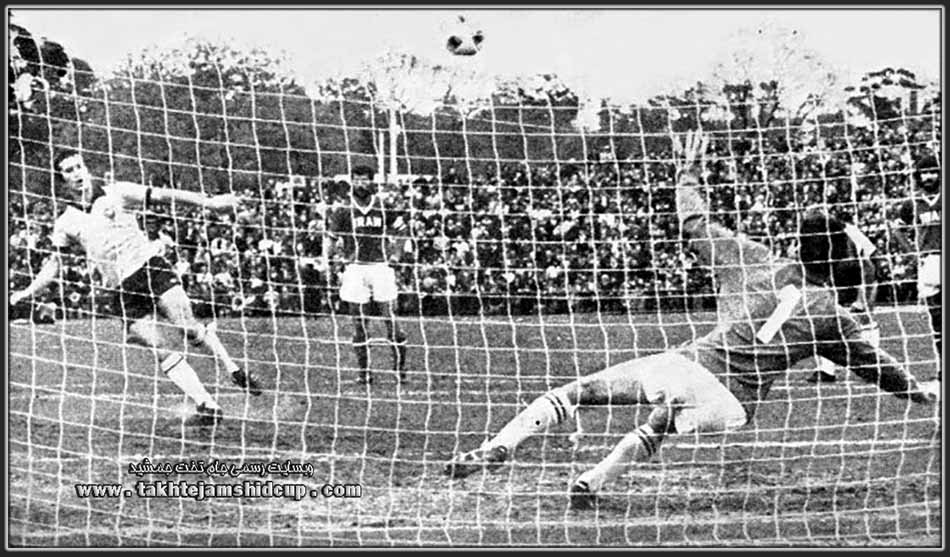
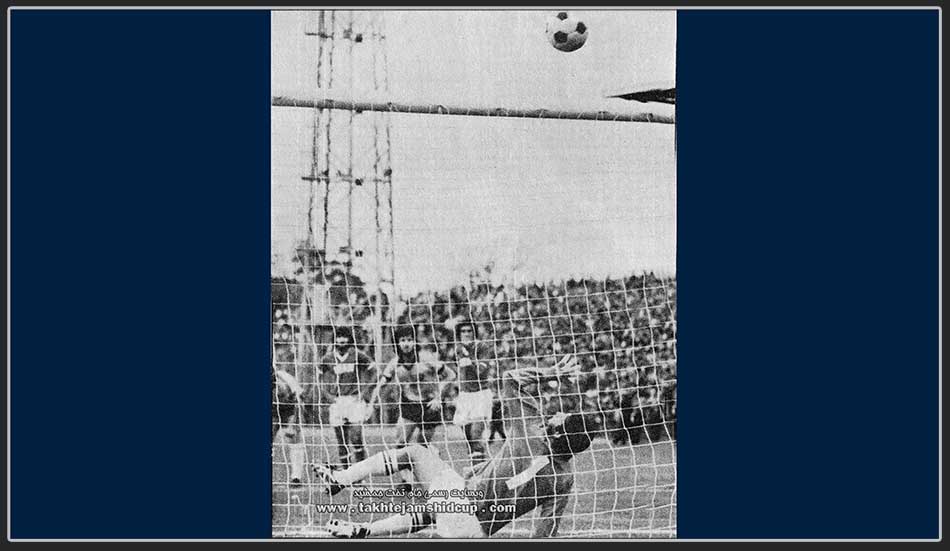
Iran launched one final attack before the halftime whistle and Jahani’s header rattled the Australian crossbar to send both teams to the locker rooms scoreless. In the second half a perfect pass by Sadeghi split the Australian defense but Roshan’s shot from inside the box was saved by the keeper. In the 70th minute Sadeghi unleashed a powerful shot that the keeper was only able to parry, leaving an empty net for Roshan to tap in the rebound and giving Iran the lead. The rest of the game would have no goals and Iran escaped with two precious points.
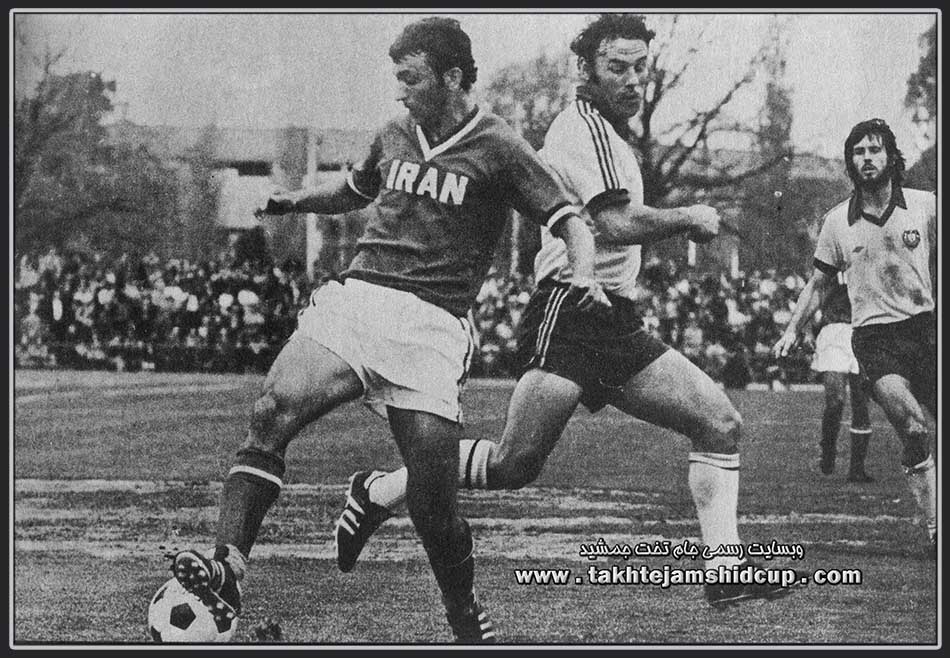
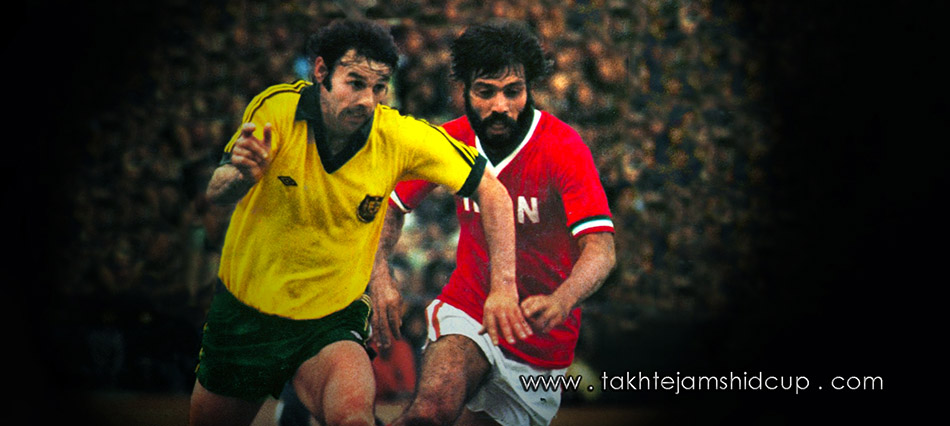

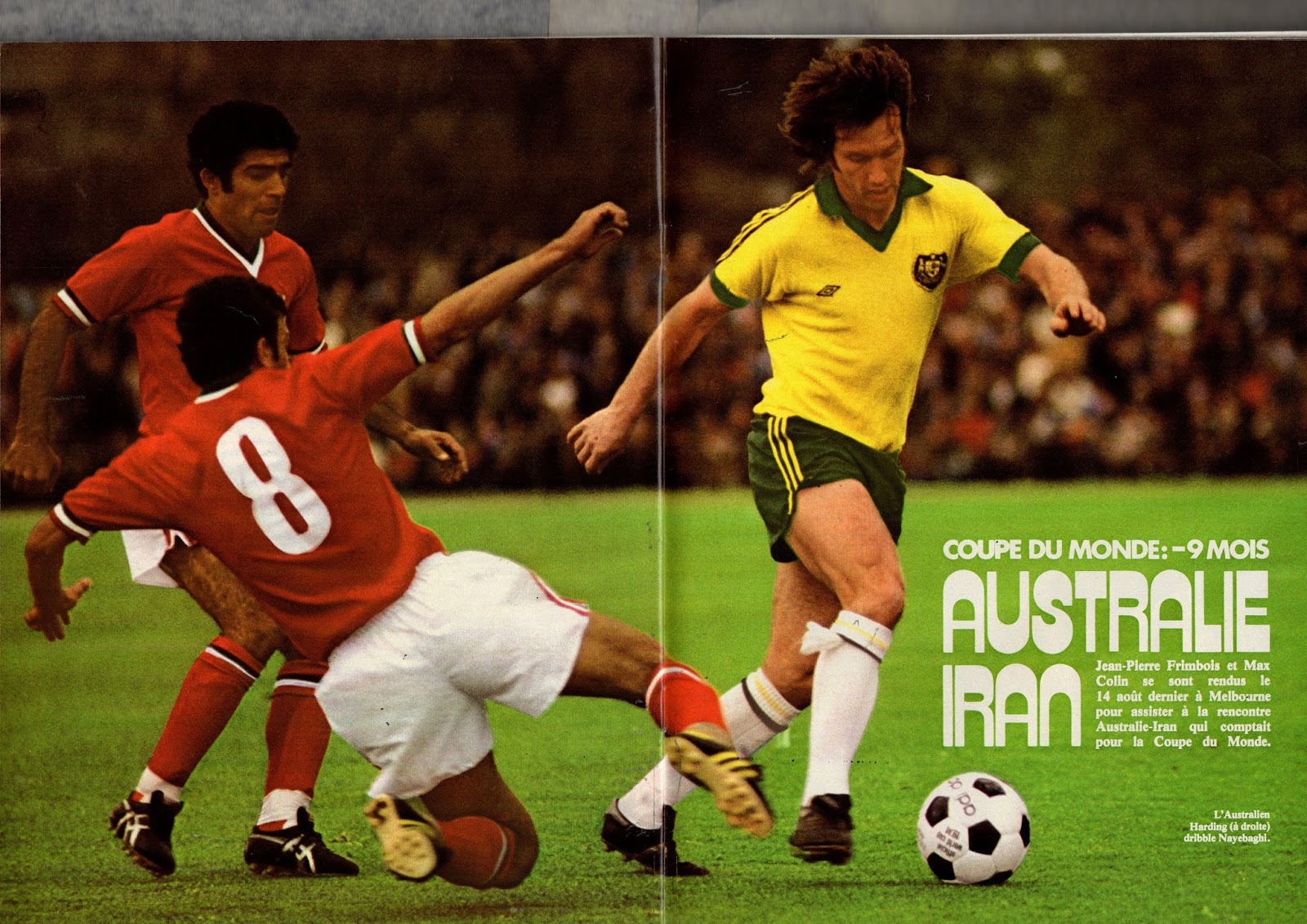

The next game, at home against Kuwait, was also a revenge match albeit for the visitors. Having lost the 1976 Asian Cup Final to Iran, Kuwait, still managed by Zagallo, was determined to make up for it and take full points from the match. For Iran its main offensive threats would be missing. Mazloomi was still nursing an injury while Roshan picked up one in the previous friendly against a Hungarian selection. In a round of psychological games though, Mohajerani announced Roshan as part of the gameday roster. Aryamehr Stadium was packed to its 100,000-person capacity on game day although some estimate up to 120,000 people were let in. Kuwait played a very cautious and defensive game, in spite of Zagallo’s pre-game claims of going in full attack mode in search of a victory. As such throughout the 90 minutes not once were they able to threaten Iran’s goal. Iran’s performance was criticized during the first half although in the second half Iran set up camp in Kuwait’s half with corner kicks in the double digits. Early in the second half, Sadeghi laid out a perfect pass for Adelkhani in the box. Kuwait’s keeper managed to get to it first and deflect the ball but only as far as Jahani who scored in the empty net and helped Iran emerge as winners by this single goal.
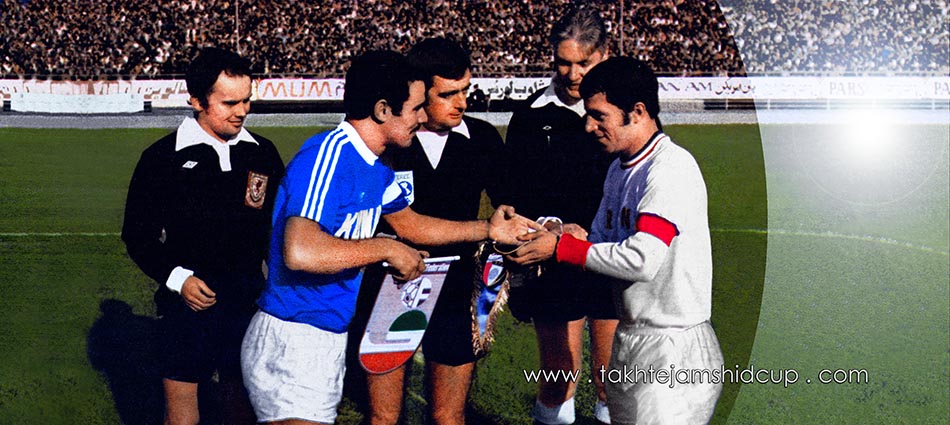
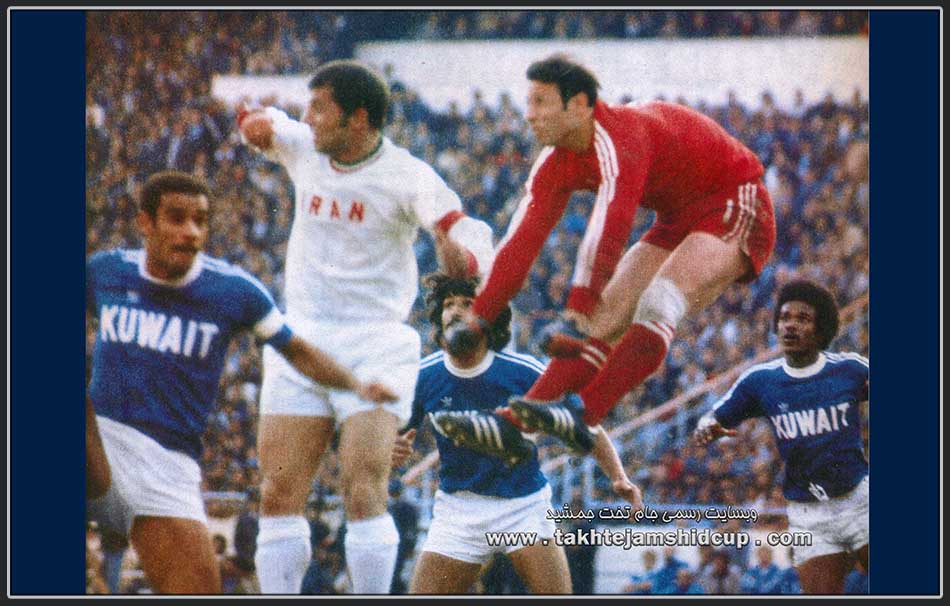
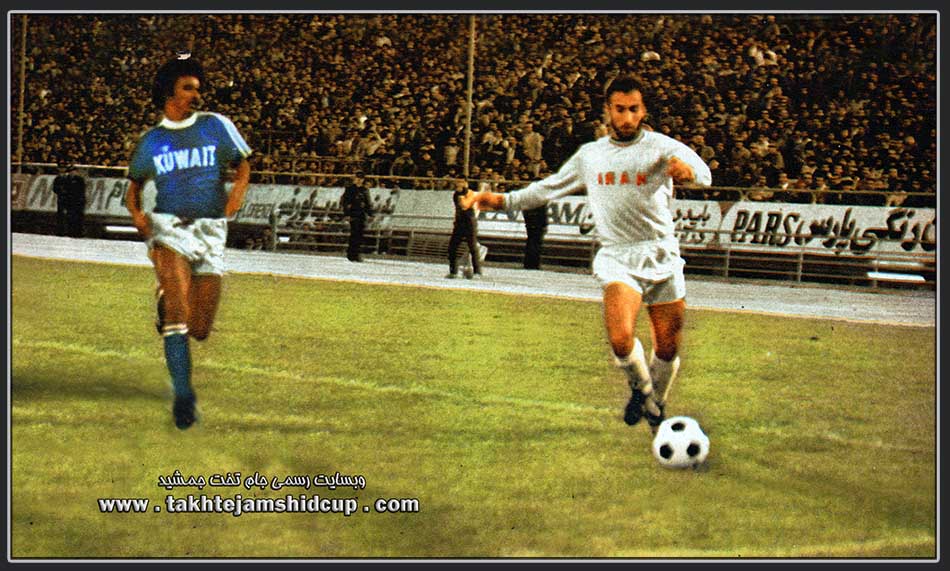
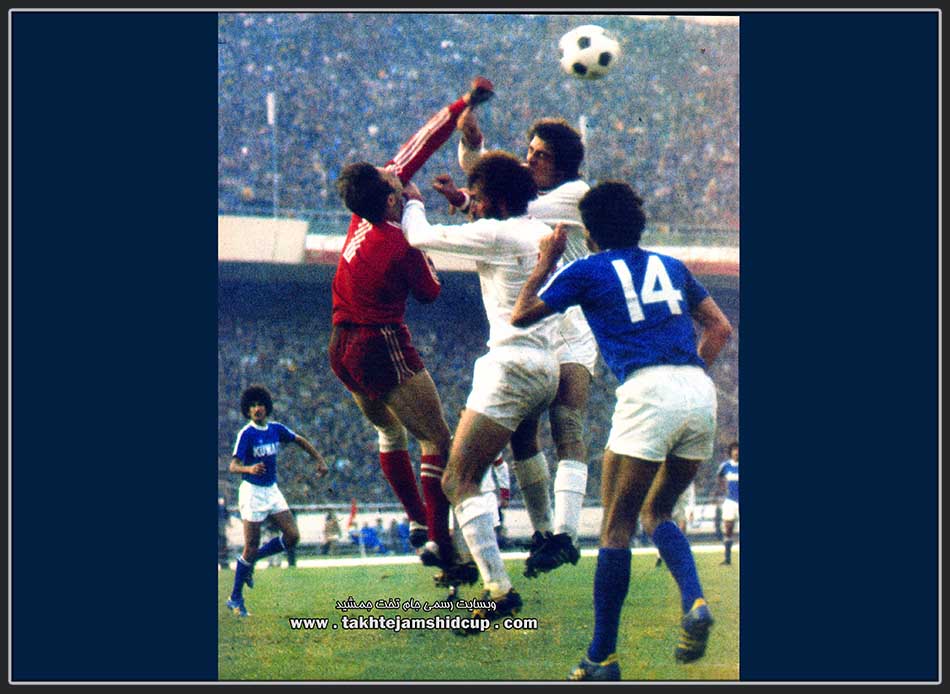
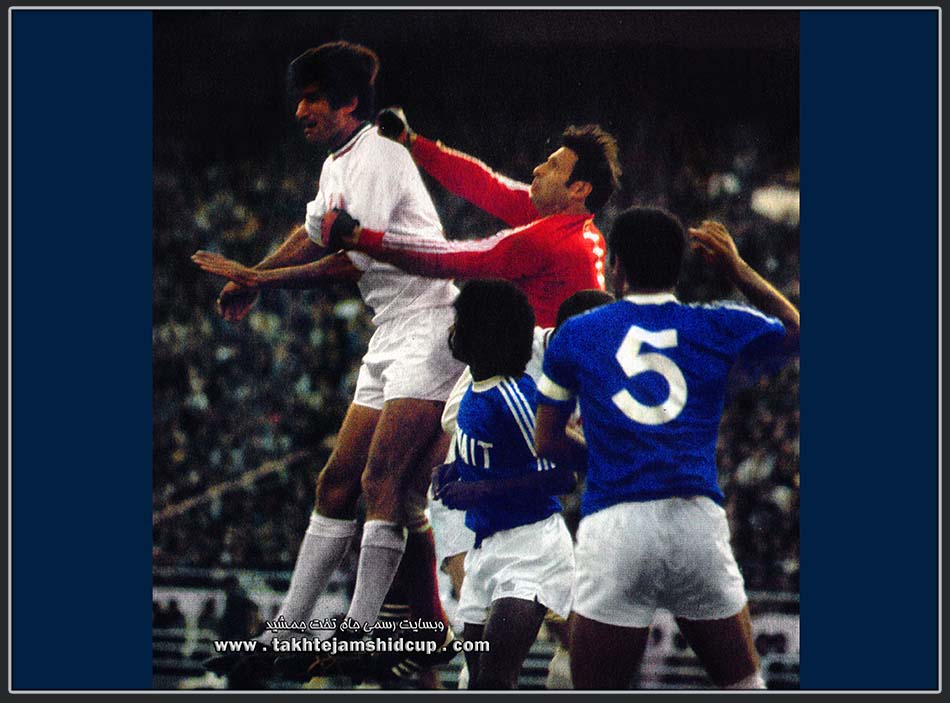
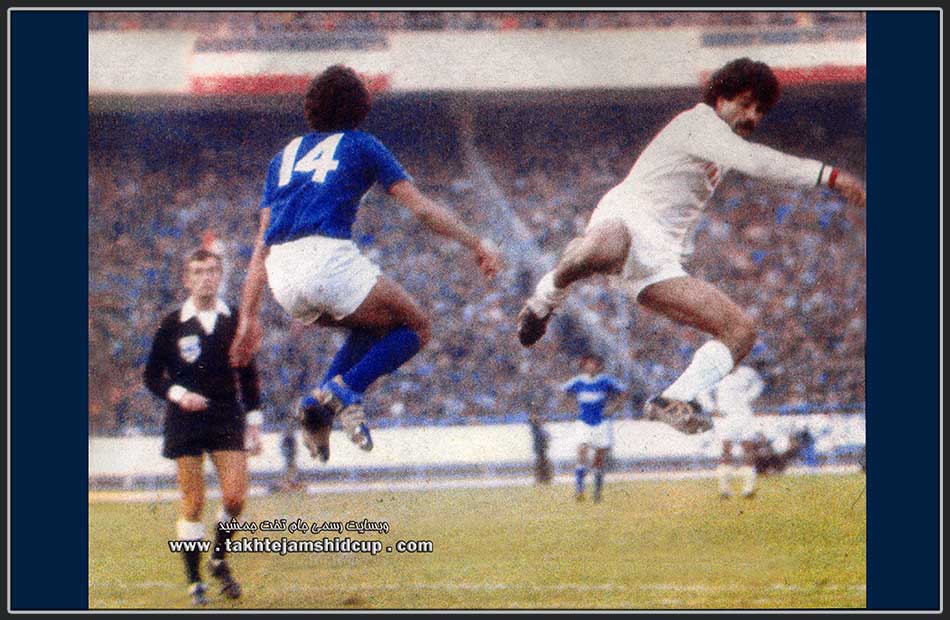
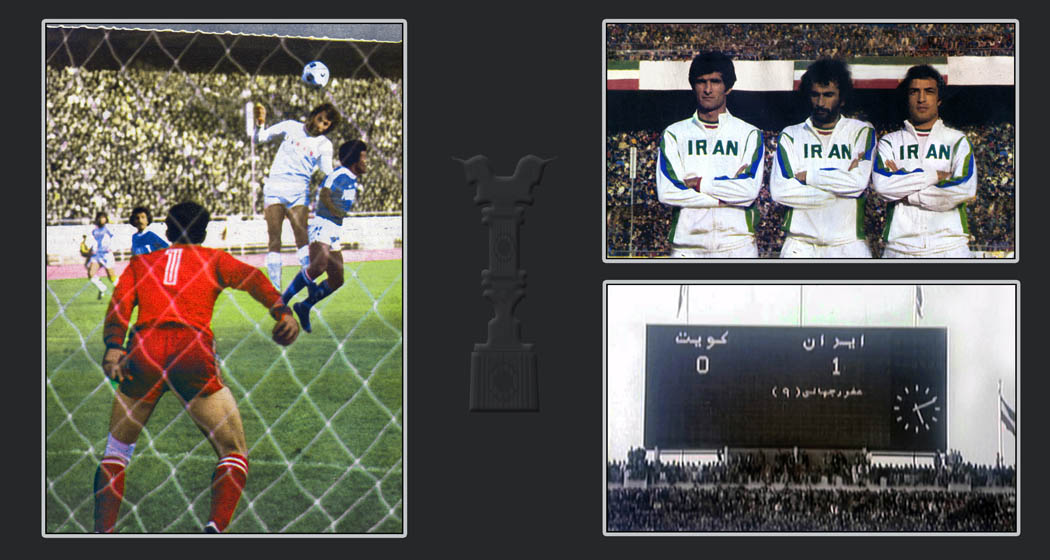

The next game would be against South Korea in Aryamehr Stadium. The ancient rivalry aside, the Koreans trailed Iran by only a single point (albeit with one additional game played) and thus getting full points in this match would be crucial to either side. A packed stadium came to witness yet another victory for Iran but were shocked when a mixup and poor clearance by Adelkhani (in spite of an impressively dispossessing a Korean player immediately prior) allowed the Koreans to unleash a shot from outside the box that sailed past Hejazi and into the net. The first half would end in favor of Korea. In the 52nd minute, a freekick from Parvin to the near post was met with Roshan’s head. Although the keeper got a hand to it, however, he was not able to control it and after hitting the post it crossed the goal line for Iran’s equalizer. In the 68th minute a corner from the right was headed towards goal. A Korean defender blocked it only for it to fall to an Iranian player who took a shot from close range. Somehow the Koreans managed to once again save the ball off the line but this time the deflection fell to Roshan who made no mistake of burying his shot and giving Iran the lead. With only minutes left, Korea launched an attack from the right side. The initial cross was headed to a teammate who passed it on with his thigh to an unmarked Korean in the six-yard box who smashed home the equalizer. The game would end in a 2-2 tie.

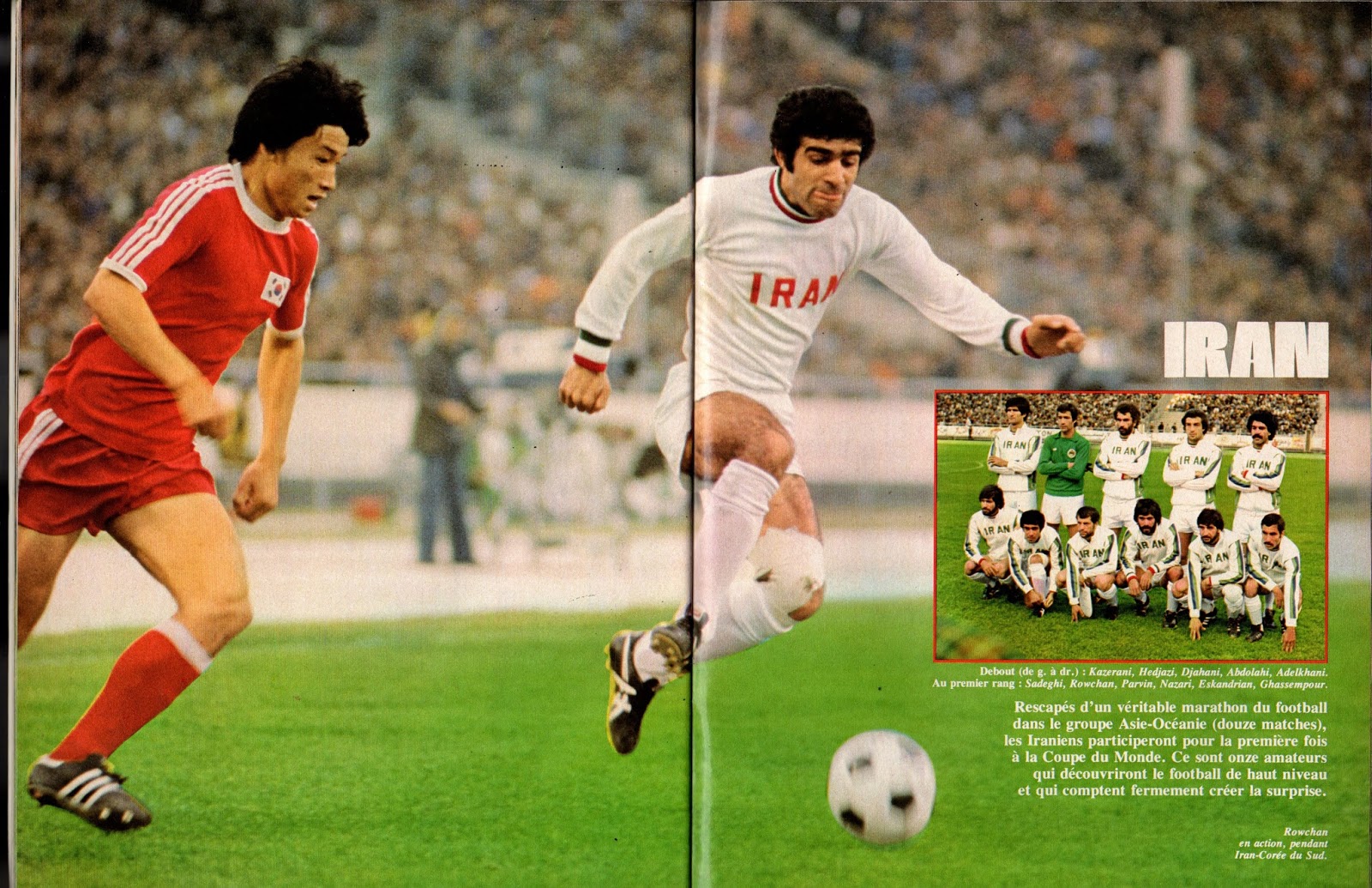
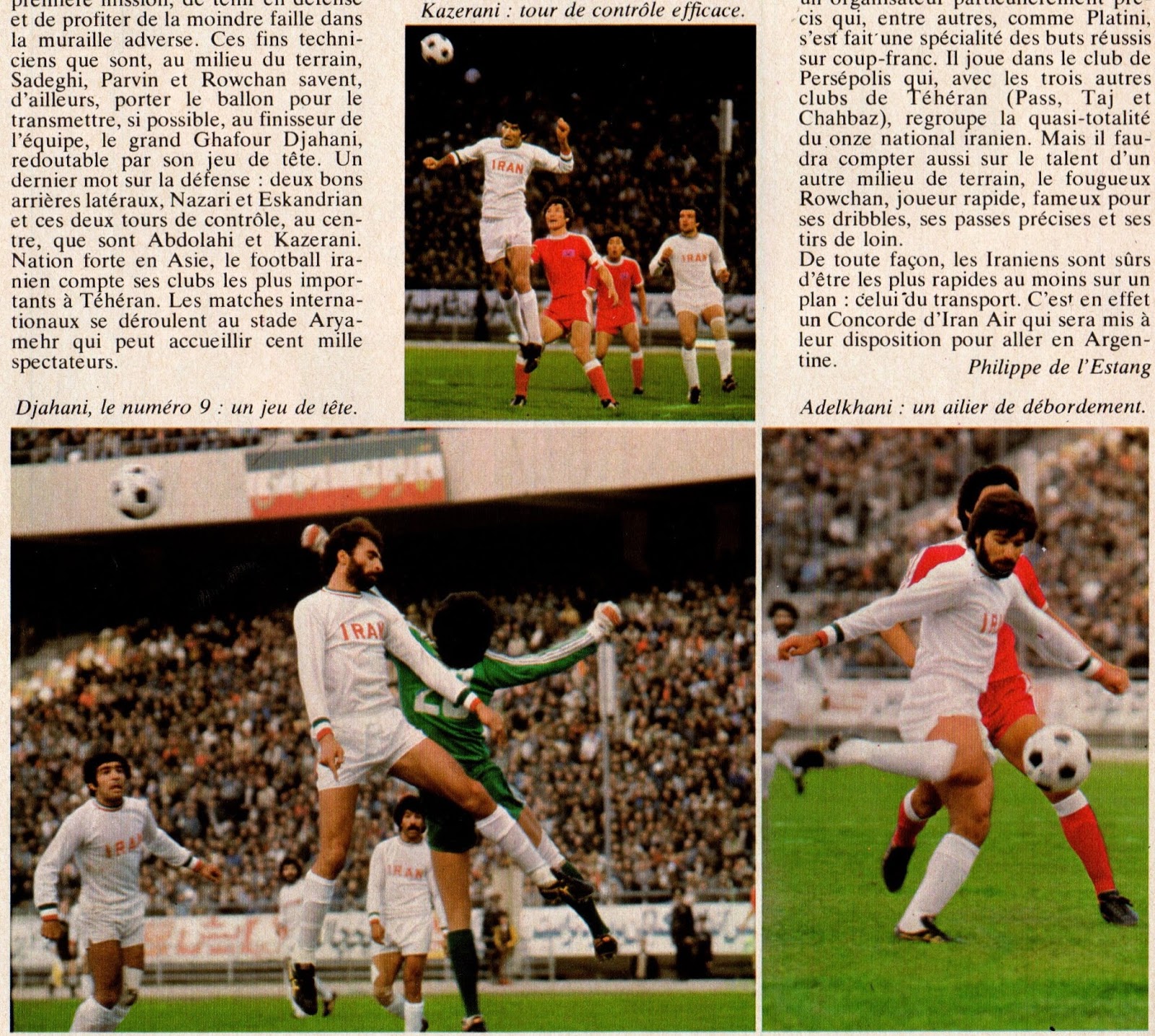

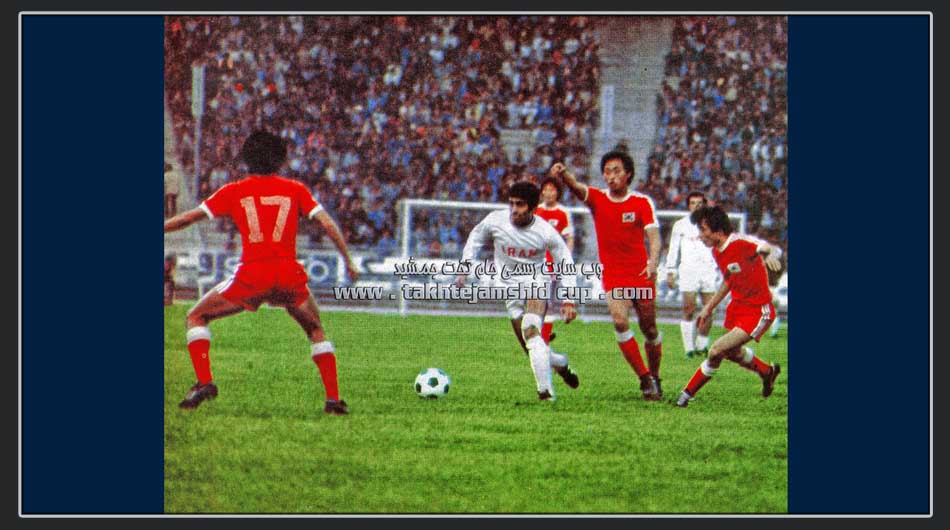
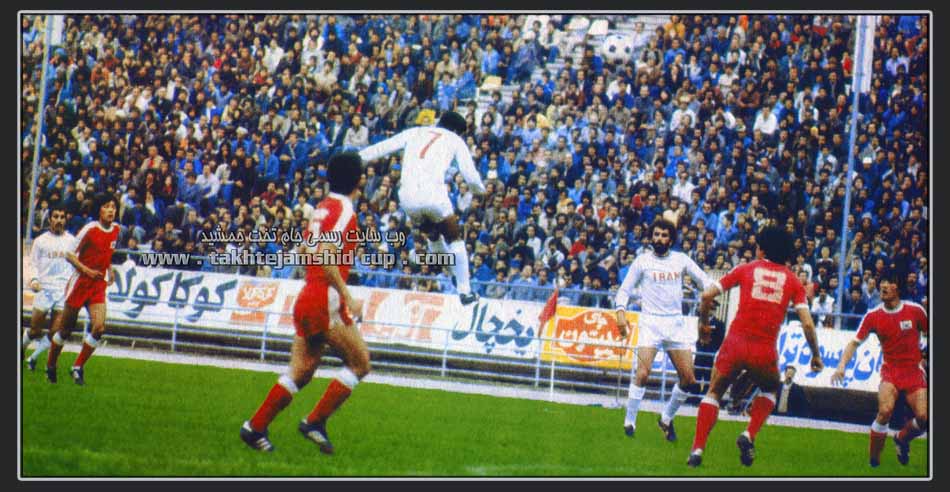
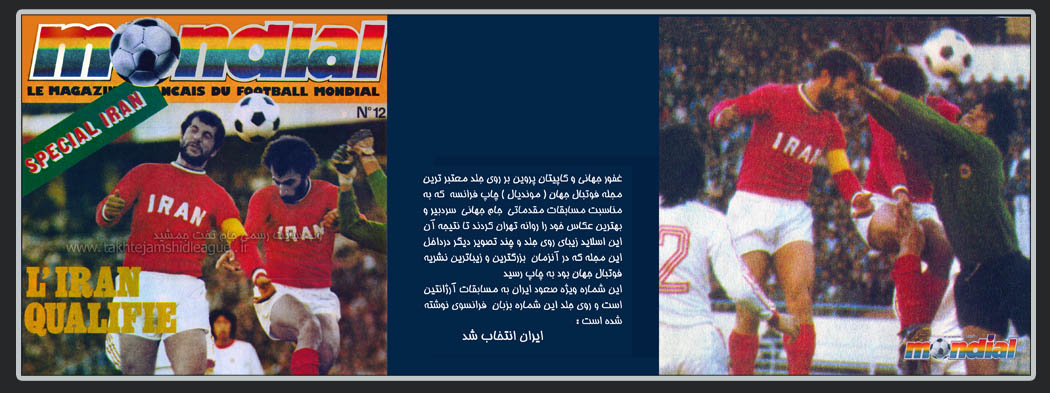
The following week Iran would play a hapless Hong Kong team that thus far had lost all of its games. In the 3rd minute a freekick from the right fell to Jahani whose shot hit a defender on the goal line before being scooped up by the keeper. However, the ref judged that the ball had already crossed the line before the keeper’s intervention and Iran took an early lead. In the 19th minute some quick passes in the penalty box enabled Kazerani to double Iran’s lead with a precise shot. In the 35th minute a cross from the right, combined with poor marking by the Hong Kong defenders and weak positioning by the keeper, enabled Jahani to head in Iran’s third and final goal. In spite of the crushing scoreline, fans were not impressed with the performance and for stretches of the game cheered the visitors and booed the hosts.



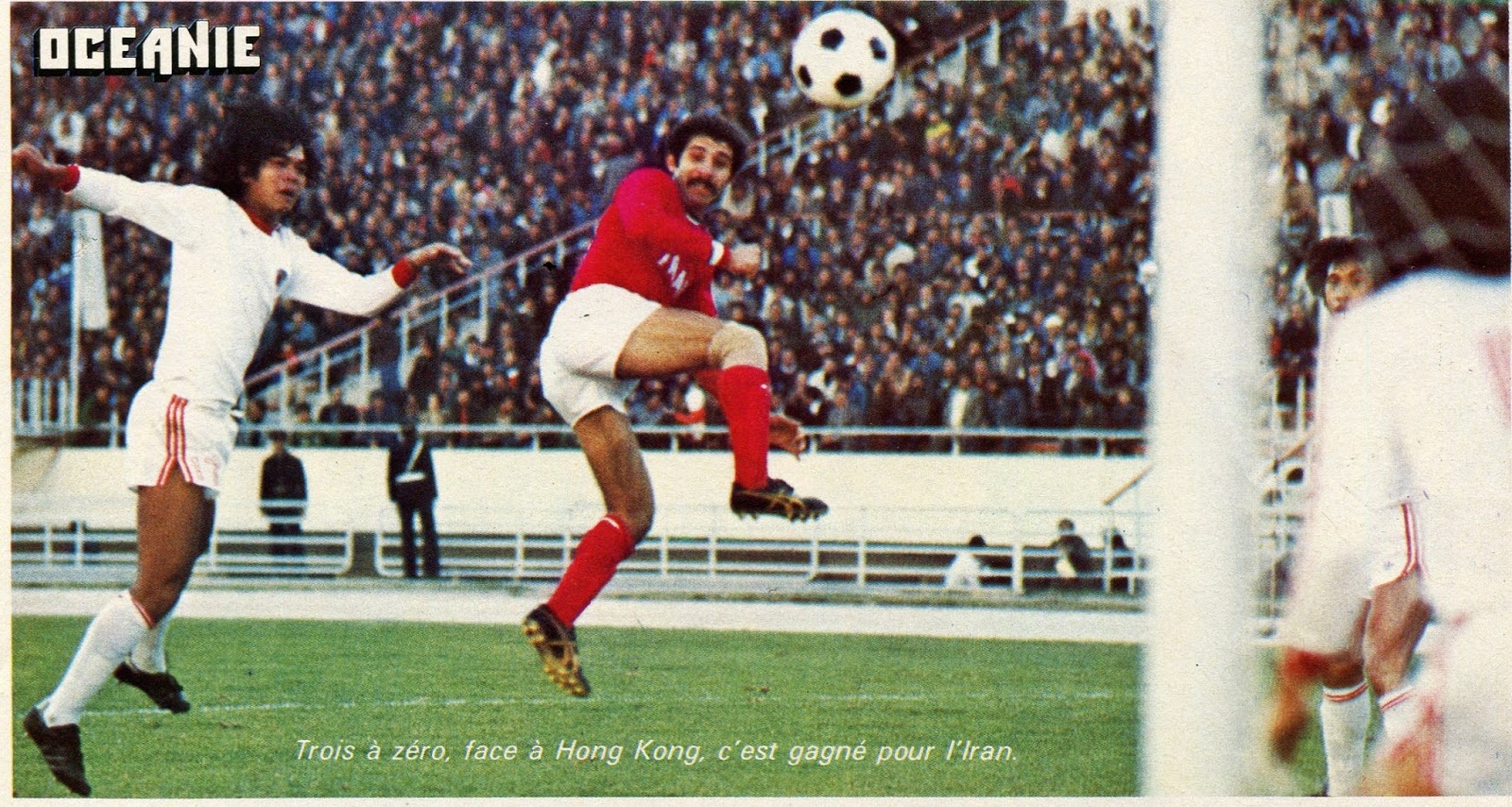
One week later Iran would play a crucial game against Australia. Given their defeat against Kuwait the week prior, Australia was already mathematically eliminated while a victory for Iran would ensure qualification with a game to spare. While Australia may have been unmotivated by virtue of already being out, however, they surely would have liked to avenge their earlier home defeat. Shoulder, the Australian coach, singled out Jahani, Ghasempour and Kazerani as the biggest threat to his team. Roshan’s status was still questionable due to an injury but it was assumed that he would be brought on in the second half if need be. The game took place in a packed Aryamehr Stadium and before the half was over Iran had taken the lead. In the 44th minute Parvin broke free from two Australian players, took off on the right flank and sent in a cross from the right corner. The Australian keeper reached it a fraction before Jahani who deflected straight into Jahani who knocked the ball into the unguarded net.

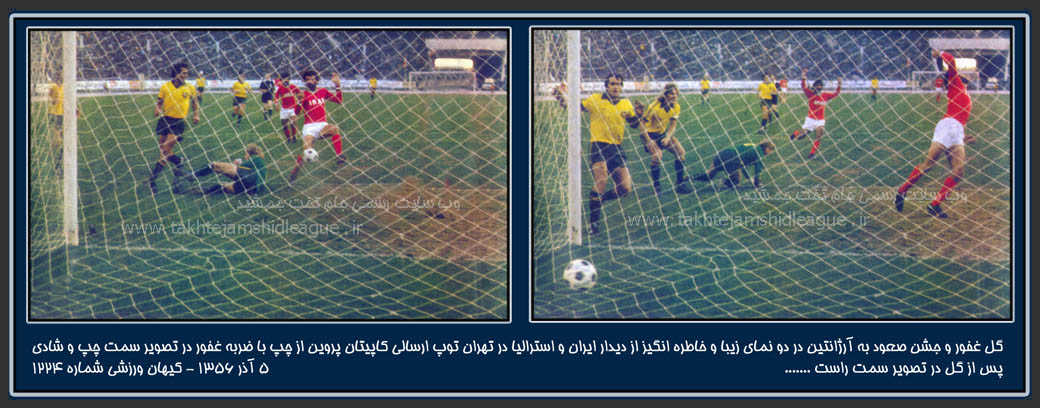
The potential outcome from this goal caused such lengthy celebrations by the players that eventually Mohajerani had to urge them to allow play to resume. This would be the only goal of the game and with it qualification for the 1978 World Cup was achieved. The following day the victory dominated the headlines with one newspaper stating that Australia’s sparrow had fallen victim to Iran’s simorgh.
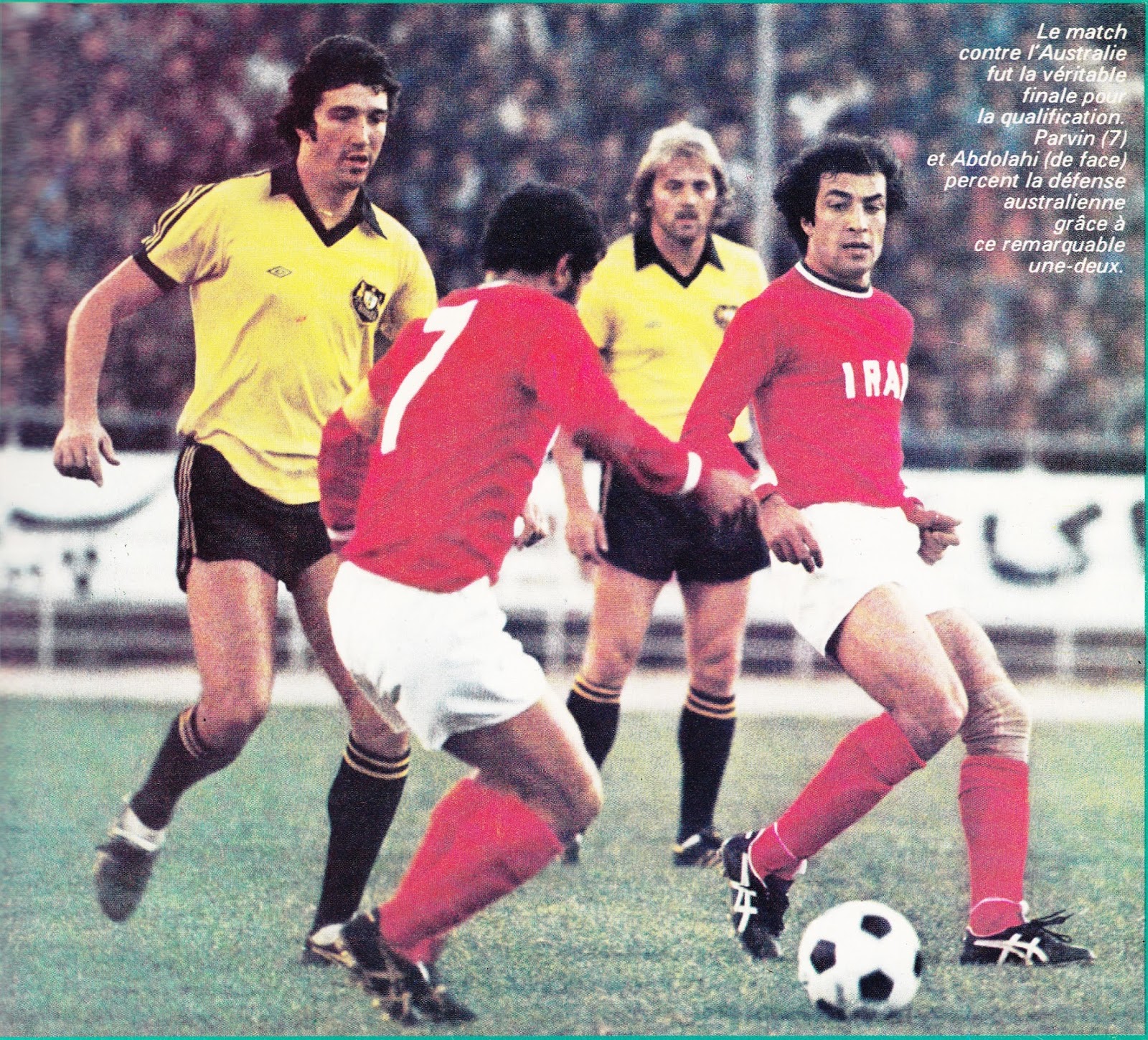
In an inconsequential final game, Kuwait played host to a young and watered-down version of Iran. Prior to the game the Kuwaitis unfurled a banner in the stadium congratulating Iran for their qualification. Kuwait would take the lead off of a through ball for which Mavaddat hesitated before leaving his line. In the second half Fariba equalized with a shot taken from well outside the box. Khabiri gave Iran the lead and win with equally thunderous shot from the edge of the box which left the keeper no chance to even react.
Iran’s qualifying campaign ended with six wins, two ties and only three goals received in eight games.
Prior to Iran’s first game, Saudi Arabia and Syria had split their series with each posting a victory at home. Without much preparation other than a short camp in Ahvaz, Iran arrived in Saudi Arabia. Abdollahi, Ghelichkhani, and Zolfagharnasab would be unavailable for the match due to injuries. Fatigue also impacted the team as players were in the midst of their domestic season in the Takht’e Jamshid Cup. While such obstacles resulted in an objectionable performance (particularly in defense) on the artificial grass surface with the Saudis twice hitting the post. Nevertheless it still yielded three goals en route to a 3-0 win.



Iranian star forward Mazloomi had a role in all three goals, scoring twice and providing the assist for the Roshan’s goal.



The next match away to Syria ended in a 1-0 win for Iran courtesy of a goal by Parvin.



Syria withdrew from the return match and as a result it was awarded 2-0 to Iran. With the points from this match Iran had qualified for the next round, however, the inconsequential match against Saudi Arabia still had to take place. The two teams squared off in Shiraz and behind goals by Yousefi and Sharifi, Iran advanced from its group with full points and no goals allowed.

The second round of qualification began in June of 1977 and the first hurdle was an away game against Hong Kong.


The game took place under intense humidity and without Mazloomi in the lineup due to injuries. Hong Kong was a relatively unknown team and started the game well with pressure on Iran’s goal although it was Iran that took the lead. On a corner kick, with Jahani lurking on the far post most of the defenders’ attention was diverted to him. As a result, Adelkhani sent the corner to the near post. Fully benefiting from the height advantage and a Hong Kong defender obstructing his own keeper, Kazerani headed in Iran’s first goal.



Throughout the first half Hong Kong had two opportunities to level the game but Sadeghi on the first chance and Hejazi and Abdollahi on the second one helped preserve the clean sheet. On the other hand Roshan and Ghasempour came close to extending Iran’s lead. The second half started slow although midway through Hong Kong increased its pressure in search of an equalizer. But ultimately it was a mistake by the Hong Kong keeper that gifted Iran its second goal. Parvin dribbled past two defenders to the right post and sent a ground pass through the keeper’s legs which fell to Jahani to tap into an empty net.

The game ended 2-0 and many believed that had Iran not approached the game in a defensive manner the score would have been higher although due to the unfamiliarity with the opponent a cautious approach seemed necessary.
The second game away against South Korea was played under similar humid conditions.


For this reason and considering South Korea’s strength, Iran played in a defensive format with many side passes while slowing the game down. Roshan reaggravated an injury and as such was not 100%. While Iran had a few chances in the first half, but it was mainly the Koreans attacking. Implementing an aerial game, they sent cross after cross in Iran’s box and had it not been for the strong play of Kazerani and Abdollahi, the first half would not have ended scoreless. In the second half Iran only threatened the Korean goal on one occasion but Roshan and Jahani’s combination play bore no results. On the other hand, South Korea introduced a new forward at halftime and spent most of the remaining time camped in Iran’s half with up to nine players at times joining in the attacks. Their best chance was when Hejazi and a Korean defender both went for an aerial ball with none of them succeeding in winning it. The ball bounced off of Hejazi’s back and made its way towards an empty net although he somehow managed to get his fingertips to it and push it out past the post. Following some rough play by Abdollahi, the Koreans had a claim for a penalty kick although the referee thought otherwise. With a bit of luck on their side, Iran managed to pull off a 0-0 tie.




The next game, away against Australia, was an opportunity for revenge. Everyone still remembered the bitter defeat in the previous World Cup cycle against the Socceroos and nothing but a victory in their own stadium would heal that pain. Iran had done its homework for this game by observing Australia’s game against Hong Kong and scouting their individual players while noting their weaknesses. Iran arrived in Australia with sufficient time to acclimate to the weather and overcome jetlag. Even the weather seemed to cooperate with Iran as the normally seasonally cold and windy weather gave its place to a warm and sunny day.






Unlike the encounter four years ago, Hejazi stood his ground perfectly and left his line with perfect timing and accuracy. Using a 4-4-2 formation, Iran matched Australia in every department but ultimately it seemed like Australia finally received the break they were looking for. With only minutes left in the first half, the Australians sent a freekick into Iran’s box. Abdollahi who had attempted to clear the ball, fell to the ground. In the ensuing melee, the ball hit has hand and the ref called a penalty kick. While Australia seemed certain to take the lead, however, their shot sailed over the bar.



Iran launched one final attack before the halftime whistle and Jahani’s header rattled the Australian crossbar to send both teams to the locker rooms scoreless. In the second half a perfect pass by Sadeghi split the Australian defense but Roshan’s shot from inside the box was saved by the keeper. In the 70th minute Sadeghi unleashed a powerful shot that the keeper was only able to parry, leaving an empty net for Roshan to tap in the rebound and giving Iran the lead. The rest of the game would have no goals and Iran escaped with two precious points.





The next game, at home against Kuwait, was also a revenge match albeit for the visitors. Having lost the 1976 Asian Cup Final to Iran, Kuwait, still managed by Zagallo, was determined to make up for it and take full points from the match. For Iran its main offensive threats would be missing. Mazloomi was still nursing an injury while Roshan picked up one in the previous friendly against a Hungarian selection. In a round of psychological games though, Mohajerani announced Roshan as part of the gameday roster. Aryamehr Stadium was packed to its 100,000-person capacity on game day although some estimate up to 120,000 people were let in. Kuwait played a very cautious and defensive game, in spite of Zagallo’s pre-game claims of going in full attack mode in search of a victory. As such throughout the 90 minutes not once were they able to threaten Iran’s goal. Iran’s performance was criticized during the first half although in the second half Iran set up camp in Kuwait’s half with corner kicks in the double digits. Early in the second half, Sadeghi laid out a perfect pass for Adelkhani in the box. Kuwait’s keeper managed to get to it first and deflect the ball but only as far as Jahani who scored in the empty net and helped Iran emerge as winners by this single goal.








The next game would be against South Korea in Aryamehr Stadium. The ancient rivalry aside, the Koreans trailed Iran by only a single point (albeit with one additional game played) and thus getting full points in this match would be crucial to either side. A packed stadium came to witness yet another victory for Iran but were shocked when a mixup and poor clearance by Adelkhani (in spite of an impressively dispossessing a Korean player immediately prior) allowed the Koreans to unleash a shot from outside the box that sailed past Hejazi and into the net. The first half would end in favor of Korea. In the 52nd minute, a freekick from Parvin to the near post was met with Roshan’s head. Although the keeper got a hand to it, however, he was not able to control it and after hitting the post it crossed the goal line for Iran’s equalizer. In the 68th minute a corner from the right was headed towards goal. A Korean defender blocked it only for it to fall to an Iranian player who took a shot from close range. Somehow the Koreans managed to once again save the ball off the line but this time the deflection fell to Roshan who made no mistake of burying his shot and giving Iran the lead. With only minutes left, Korea launched an attack from the right side. The initial cross was headed to a teammate who passed it on with his thigh to an unmarked Korean in the six-yard box who smashed home the equalizer. The game would end in a 2-2 tie.







The following week Iran would play a hapless Hong Kong team that thus far had lost all of its games. In the 3rd minute a freekick from the right fell to Jahani whose shot hit a defender on the goal line before being scooped up by the keeper. However, the ref judged that the ball had already crossed the line before the keeper’s intervention and Iran took an early lead. In the 19th minute some quick passes in the penalty box enabled Kazerani to double Iran’s lead with a precise shot. In the 35th minute a cross from the right, combined with poor marking by the Hong Kong defenders and weak positioning by the keeper, enabled Jahani to head in Iran’s third and final goal. In spite of the crushing scoreline, fans were not impressed with the performance and for stretches of the game cheered the visitors and booed the hosts.




One week later Iran would play a crucial game against Australia. Given their defeat against Kuwait the week prior, Australia was already mathematically eliminated while a victory for Iran would ensure qualification with a game to spare. While Australia may have been unmotivated by virtue of already being out, however, they surely would have liked to avenge their earlier home defeat. Shoulder, the Australian coach, singled out Jahani, Ghasempour and Kazerani as the biggest threat to his team. Roshan’s status was still questionable due to an injury but it was assumed that he would be brought on in the second half if need be. The game took place in a packed Aryamehr Stadium and before the half was over Iran had taken the lead. In the 44th minute Parvin broke free from two Australian players, took off on the right flank and sent in a cross from the right corner. The Australian keeper reached it a fraction before Jahani who deflected straight into Jahani who knocked the ball into the unguarded net.


The potential outcome from this goal caused such lengthy celebrations by the players that eventually Mohajerani had to urge them to allow play to resume. This would be the only goal of the game and with it qualification for the 1978 World Cup was achieved. The following day the victory dominated the headlines with one newspaper stating that Australia’s sparrow had fallen victim to Iran’s simorgh.

In an inconsequential final game, Kuwait played host to a young and watered-down version of Iran. Prior to the game the Kuwaitis unfurled a banner in the stadium congratulating Iran for their qualification. Kuwait would take the lead off of a through ball for which Mavaddat hesitated before leaving his line. In the second half Fariba equalized with a shot taken from well outside the box. Khabiri gave Iran the lead and win with equally thunderous shot from the edge of the box which left the keeper no chance to even react.
Iran’s qualifying campaign ended with six wins, two ties and only three goals received in eight games.
















Comment